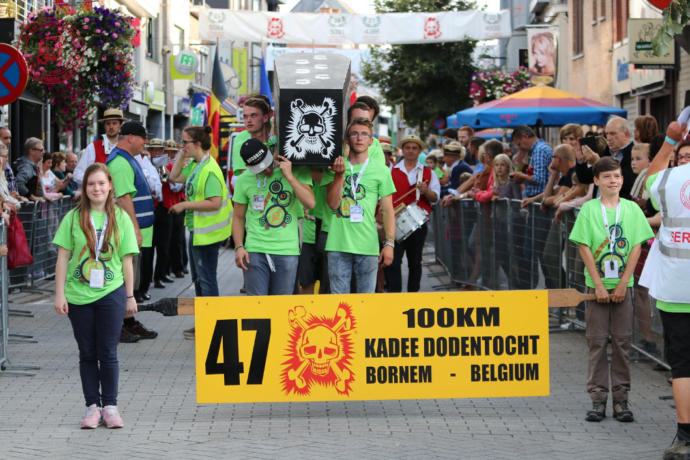
Flanders
Most traditions in Flanders are based on local or regional folklore. Therefore there are no real national traditions as the community was formed only in 1973. Flanders is part of Belgium since 1830's Belgian revolution. However Flanders is in the processes of legally gaining independence since the 1970's.
The people of Flanders speak Flemish, which is a dialect related to Dutch. Its basically the same language formally, however the dialects differ strongly. Most Flemish people refuse to speak formal Dutch, preferring their local dialects.
Flanders was originally a swamp region between Gaul (modern day France) and Frisii (modern day Netherlands). Most swamps have been drained since the Middle Ages to make way for urbanization.
Flanders is the top part of Belgium. Its community was officially formed in 1973. Although the first written accounts of the Flemish people comes from Classical Antiquity. Emperor August named it 'Flandriensis' after it was conquered by Julius Caesar in 57AD Its named after the Germanic word 'Flamhaz' which means 'swamp'.
Hundred Days
The tradition of the 'hundred Days' is when the students of the last grade of high school on the last hundred days of school will skip school and 'terrorize' the city in which their school is located. Students will dress up in all kinds of suits and run amok through the city before arriving at school late. It is however totally illegal.

More and more schools are organizing activities to celebrate the last hundred days because they want to reform the tradition into something more legal. My school went snowboarding as celebration in my last year of high school.
The principal said that if we were going to dress up and run amok in the city we were going to get arrested. Therefore we did what every Flemish student would do. Got totally wasted on alcohol before going school.
'Voil janetten'
In the city of Aalst there is a tradition where thousands of men will dress up as a woman during a specific day of the carnival of Aalst.



'Dodentocht', literally 'Deathmarch', or 'March of Death'. Its a tradition that emerged 50 years ago. Thousands of people gather together to march, or run, 100 kilometers together. Its in the summer. Many don't make it to the end. Every year paramedics need to save people due to dehydration. It lasts several days. You have to bring your own camping gear to sleep at night. Water will be provided to you at certain intervals. Some have died.
March of Death

This is an annual tradition where Flemish people commemorate the fallen Flemish soldiers of World War I. On this day people also commemorate the message of the Front Movement. War never again, self sufficiency and gods peace. Its named after the Iron Front, which was a battle in West Flanders during WWI. The Front Movement was a movement of intellectuals who opposed the French-only policy of the Belgian army during WWI.
Pilgrimage of Iron
Of course some people like to dress up. it seems that we Flemish like doing that on every occasion we can get away with.
Every year around new year thousands of people from all over Flanders gather together in the same location to take a dive in the sea. Its a tradition that's also practiced in the Netherlands though.
New years Dive
This tradition emerged from men wanting to participate in the carnival in the past but not having enough money to buy a costume, so they just used the clothes of their wives. 'Voil Janet' translates to 'dirty crossdresser'.
 Girl's Behavior
Girl's Behavior  Guy's Behavior
Guy's Behavior  Flirting
Flirting  Dating
Dating  Relationships
Relationships  Fashion & Beauty
Fashion & Beauty  Health & Fitness
Health & Fitness  Marriage & Weddings
Marriage & Weddings  Shopping & Gifts
Shopping & Gifts  Technology & Internet
Technology & Internet  Break Up & Divorce
Break Up & Divorce  Education & Career
Education & Career  Entertainment & Arts
Entertainment & Arts  Family & Friends
Family & Friends  Food & Beverage
Food & Beverage  Hobbies & Leisure
Hobbies & Leisure  Other
Other  Religion & Spirituality
Religion & Spirituality  Society & Politics
Society & Politics  Sports
Sports  Travel
Travel  Trending & News
Trending & News
What Girls & Guys Said
Opinion
1Opinion
Great, thanks
Share the first opinion in your gender
and earn 1 more Xper point!